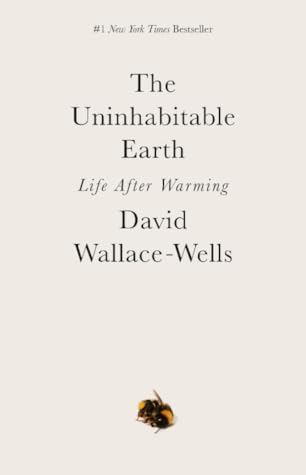More on this book
Community
Kindle Notes & Highlights
Read between
February 27 - April 23, 2024
we want to be seen so that we know we exist.
the alien fantasy doesn’t place humans at the center of a grand story. In fact, it displaces us—in that way it is a sort of Copernican dream.
Contemporary politics is now protest politics, the anger so thickly absorbed that we often have difficulty even recognizing it as radical.
But, to trust the cautious judgment of the United Nations, which insisted we had barely a decade to halve emissions, they were also hopelessly inadequate to the task of avoiding climate catastrophe.
But the growing hypocrisy of the truly empowered—corporations, nations, political leaders—illustrates a far more concerning possibility, all the more alarming for being so familiar from other realms of politics: that climate talk could become not a spur to change but an alibi, a cover, for inaction and irresponsibility, the world’s most powerful uniting in a chorus of double-talk that produces little beyond the song.
Los Angeles can seem, in this way, ahead of its time, a preview of the climate future the rest of the world is only peeking at through stretched fingers:
what I found there was a very different kind of preview of the warming future—a case study in normalization, whereby we reflexively recalibrate our expectations so that we are never as shocked or horrified as we should be by the suffering we are living through today and expecting to arrive tomorrow.
Already, California fires are five times larger than they were in the 1970s, with summertime fires eight times bigger;
we will go about our daily business as though the crisis were not so present, enduring in a world increasingly defined by the brutality of climate change through compartmentalization and denial,
Those with power to make meaningful change are often those today most protected from warming; in many cases, they are those who stand to benefit, typically handsomely, from inaction.
We must uncenter our minds from ourselves; We must unhumanize our views a little, and become confident As the rock and ocean that we were made from.
“The belief that human life will continue, even if we ourselves die, is one of the underpinnings of society.” “Once that belief begins to crumble, the collapse of a civilization may become unstoppable,”
“We believe that the roots of these crises lie in the stories we have been telling ourselves,” namely “the myth of progress, the myth of human centrality, and the myth of our separation from ‘nature.’ ” These, they add, “are more dangerous for the fact that we have forgotten they are myths.”
don’t believe now that anything can break this cycle, barring some kind of reset: the kind that we have seen many times before in human history.
If you don’t like any of this, but you know you can’t stop it, where does it leave you? The answer is that it leaves you with an obligation to be honest about where you are in history’s great cycle, and what you have the power to do and what you don’t.
you will be wasting your time.
Here is our paradox: The world can’t go on this way; and it can’t do otherwise.
It was the collective power of some—not all—human beings that got us into this: power over resources, power over the seasons, power over one another.
But it does not yet include the power of accountability or restrain...
This highlight has been truncated due to consecutive passage length restrictions.
To face the Anthropocene, humans would need a way of facing one another. We would...
This highlight has been truncated due to consecutive passage length restrictions.
I believe, as Purdy does, that the degradation of the planet and the end of natural abundance demand a new progressivism animated by a renewed egalitarian energy; and I believe, as Al Gore does, that we should push technology to chase every last glimmer of hope for averting disastrous climate change—including unleashing, or indulging, market forces to help do so when we can.
I believe in engagement above all, engagement wherever it may help.
In fact, I find any other response to the climate crisis morally incomprehensible.
“just as we have forgotten that Frankenstein was the man, not the monster, we have also forgotten Frankenstein’s real sin.”
he abandoned the creature to itself
the cause of our accelerating and collectively willed suicide may be despair over the failed system of capitalism and commodity-driven meaning, as well as the crippling condition that psychologists call ‘species loneliness,’
“The earth will survive; it’s the humans that might not.”


